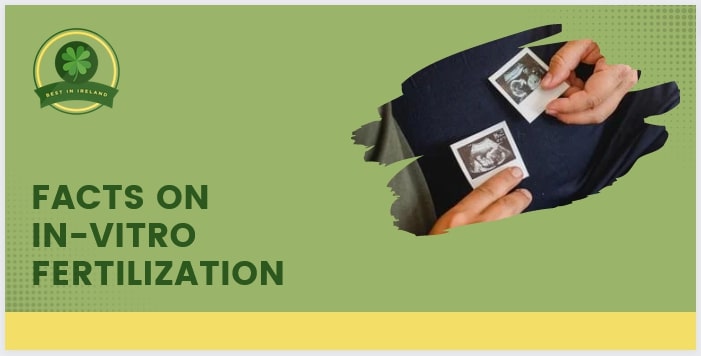Facts on In-Vitro Fertilization
Having a family is one of the biggest decisions in any of our lifetimes. Once a couple is ready, there may be times where it is hard to conceive.
In this article, we’ll show you one of the assistive medical treatments that can help with this: in-vitro fertilization.
It Is an Assisted Reproductive Technology
In-vitro fertilization, or IVF for short, is one of the many options for couples to conceive a child safely. It makes use of the latest medical technology in clinics to fertilize the eggs and sperm and can take as little as three weeks.
Donor Eggs and/or Sperm May be Used
The eggs and sperm used for this process don’t have to be from the couple. There are cases where donor eggs and sperm are used to facilitate the process. The donor can be a close family member or an anonymous one.
For this reason, you should approach a trained counselor and an attorney to guide you through this process. That way, all parties can come to an agreement and file papers to become legal parents.
Helps Couples Conceive Due to Medical Complications
This is a viable option for couples to conceive due to any of the following:
- Genetic disorder. Before performing IVF, the eggs and sperm go through a process known as preimplantation genetic testing. This is especially important if one or both partners carry genes for a genetic disorder that runs in their respective families.
- Preservation for health conditions. If the partner is about to undergo a major treatment (e.g. radiation or chemotherapy), IVF can be used to keep the eggs frozen in an unfertilized state for later use.
- Impaired sperm production or function. This can range from size abnormalities in sperm to reduced sperm concentration.
- Fallopian tube damage or blockage. This is when your partner’s fallopian tube cannot be used to get the egg to be fertilized or let the said fertilized egg travel to the uterus.
- Tubal sterilization or removal. If your partner had their fallopian tubes removed or blocked through tubal ligation, this is an alternative to tubal ligation reversal surgery.
- Ovulation problems. Not being able to produce enough eggs or not producing at all for your partner is a viable reason to opt for IVF.
- Endometriosis. This disorder happens when the tissue lining the uterus grows outside it and implants itself, which causes the fallopian tubes, ovaries, and uterus to function abnormally.
- Uterine fibroids. These are benign tumors in the uterus that appear once your partner is in their 30s or 40s. They can affect the ability of the fertilized eggs to implant themselves in the uterus.
- Unexplained fertility. If you or your partner cannot conceive due to a factor that cannot be seen after screening for common causes.
Several Tests are Needed Before Proceeding
Before starting the IVF process, the following tests are performed:
- Uterine exam. This checks for uterus health and function. This exam can include: sonohysterography (injecting fluid into the uterus from the cervix), hysteroscopy (a lighted telescope is inserted into the uterus through the vagina and cervix), and ultrasound.
- Ovarian reserve testing. This makes use of the partner’s blood from their first menstrual cycle to check the levels of anti-mullerian hormone, follicle-stimulating hormone, and estradiol.
- Mock embryo transfer. This is for the doctor to check the depth of one’s uterus cavity and learn the technique to implant the actual embryo later in the process.
- Infectious disease screening. The doctor will check both of you for diseases such as HIV.
- Semen analysis. You or your partner’s semen is checked either on your initial fertility evaluation or before the IVF treatment.
Chances of Getting Birth after IVF
Even if you or your partner underwent IVF, there are a few factors that can increase or decrease your chances of having a healthy baby:
- Lifestyle factors. Using alcohol, smoking, and recreational drugs can affect one’s chances of getting pregnant even after IVF. Being on certain medications and being obese can also lower one’s chances.
- Maternal age. Younger women that went through IVF can increase their chances of getting pregnant. However, women aged 41 and above can ask donors to increase their chances.
- Embryo status. Less-developed embryos can decrease one’s chances of getting pregnant. This requires medical attention from your doctor.
- Reproductive history. Women who went through IVF and have given birth before have higher chances of getting pregnant than women who never gave birth but had IVF. Aside from that, women who went through IVF multiple times also have lower chances.
- Infertility causes. Higher chances of getting pregnant after IVF include producing a normal supply of eggs and not having endometriosis.

